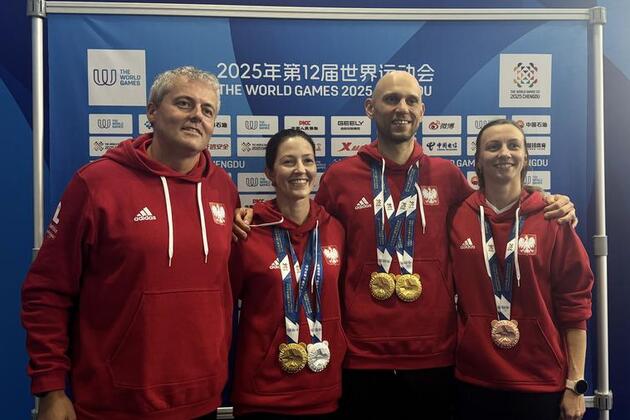Move FM Australian News

Feature: Poland’s freediving success at Chengdu World Games shows depth of talent
Aug 14, 2025Poland’s elite freedivers demonstrated remarkable performance and resilience at the Chengdu World Games, fueling hopes for freediving’s potential Olympic return.
by sportswriters Dong Yixing and Gao Meng
CHENGDU, Aug. 13 (Xinhua) — After the final freediving competitions concluded Monday, three Polish athletes stood in the mixed zone, their medals gleaming as they posed for photos with Polish media.
The five medals – three gold, one silver and one bronze – solidified Poland’s dominance in the pool at the Chengdu World Games. “We are the powerhouse of freediving in the world,” said Katarzyna Ewa Kochaniak-Roman, Poland’s chef de mission.
The foundation for this success was laid Sunday when Julia Malgorzata Kozerska electrified the Chengdu Sport University Sancha Lake Campus Natatorium with a world-record 222.5-meter swim in the women’s dynamic no-fins (DNF) event, surpassing her previous mark by 8.5 meters.
“I am super happy. I improved my old record by eight and a half meters,” said the 37-year-old, crediting relentless preparation. “I have been training for the World Games for the last 10 months. Just hard work and the right mindset.”
Moments later, Mateusz Jan Malina battled Chengdu’s unusually deep 3-meter pool to claim gold in the men’s DNF with a 228.5-meter swim. “It’s hard, very challenging. I gave my maximum today,” he admitted.
By Monday, it was clear that fatigue had failed to slow Poland’s momentum. Malina secured his second gold in dynamic with fins (DYN), joking he felt “squeezed like a lemon” after back-to-back wins.
Kozerska, nursing “extremely tired muscles,” still managed a 200-meter swim for DYN silver. “I wasn’t expecting much today, so I’m very happy anyway,” she said. Meanwhile, Magdalena Solich Talanda completed Poland’s haul with bronze in both women’s events.
The athletes’ paths highlight a sport fueled by perseverance, often discovered later in life. Kozerska stumbled upon freediving in 2011 during a lifeguard course.
“We had to swim 50 meters underwater. I struggled terribly – and that’s how it started,” she told the International Association for the Development of Apnea (AIDA) in 2024.
For Malina, a veteran since 2008, age has brought mental resilience. “When we’re young, we’re stronger but not as calm. Freediving demands focus,” said the 39-year-old, who now trains once daily due to physical limits. Yet he values the sport’s introspective nature: “You learn a lot about yourself. It can even heal trauma.”
Poland’s success stems from an unlikely hub: its mountainous south. “I live 20 minutes from Magda. Julia is 1.5 hours away,” noted Malina. Infrastructure has also spurred growth, including Europe’s deepest pool-the 44-meter Deepspot Diving Center near Warsaw, opened in December 2020. “Since that pool was built, freediving has grown rapidly,” Malina said.
China’s head coach, Zhao Lei, credited Poland’s swimming culture: “In Poland, everyone can swim. They have countless pools.” Though training is solitary, competitions foster camaraderie. “We meet, exchange tips, share secrets,” said Malina, though he attributes success simply to “consistency and hard work.”
As Kozerska prepares to visit pandas before departing, and Malina heads to depth training in Greece, their triumphs reflect a shared ambition. Chef de Mission Kochaniak-Roman eyes freediving’s Olympic return: “It was in Paris in 1900. We hope Brisbane might bring it back.”


